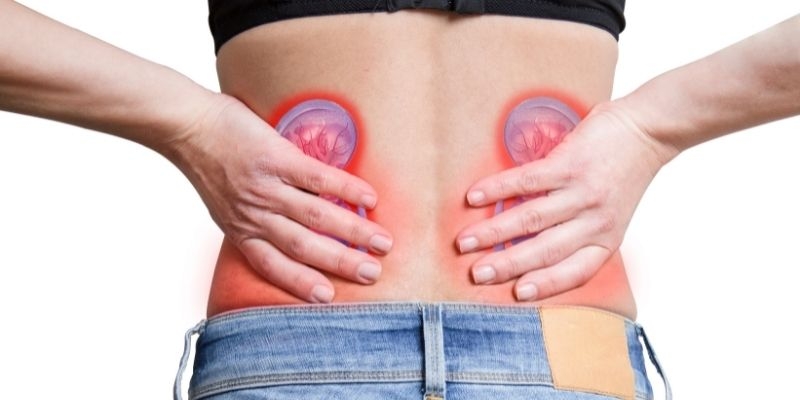HOW TO REMOVE KIDNEY STONES?
2021-12-27 / RG STONE HOSPITAL / Urinary / Kidney Stone

Kidney Stones can be challenging, and if the condition turns severe, an operation to remove the stone is inevitable. Kidney Stones are hard mineral clumps that deposit along the lining of the kidneys and cause trouble in the urinary tract course. If you experience nausea, fever, bloody or cloudy urine, or stabbing pain in your belly or sides, you must immediately schedule an appointment for a kidney stone removal procedure.
Several treatments are available for removing kidney stones. However, you must discuss your options with a urologist before going ahead with a kidney stone removal surgery. While home remedies for removing stones are popular, you must always consult with your doctor if you need to undergo a kidney stone removal surgery to understand the severity of the situation.
Kidney Stone Removal Surgeries
Shock Wave Lithotripsy – Your doctor can utilise a shock wave lithotripsy to break the stone into smaller pieces so that it is easier to pass it through the urinary tract. You will be given anaesthesia since it is an outpatient procedure.
Cystoscopy and Ureteroscopy – A urologist will use a cystoscope to look inside the urethra and bladder to locate the stone during a cystoscopy procedure. In contrast, ureteroscopy involves using a ureteroscope, which is a longer and thinner tube than a cystoscope to see the detailed images of the lining of the ureters and kidneys. In both surgeries, the doctor will insert the tube through the urethra to get images of the entire urinary tract. Once your doctor can locate the stone, they will break it down into smaller pieces or remove it entirely.
Percutaneous Nephrolithotomy – Even this surgery involves the insertion of a thin viewing tool, usually called a nephroscope, to locate the kidney stone and remove it. However, the tool is inserted directly into the kidneys through a small cut made in the back. The doctor may even use a laser to break them down into smaller pieces for larger stones.
Home Remedies to Treat Kidney Stones
Dehydration is one of the leading causes that can result in kidney stones. However, by staying hydrated or drinking juices infused with natural ingredients such as lemon, basil, celery, or pomegranate, you might not have to undergo a kidney stone treatment surgery, and the stone might pass naturally through frequent urination.
If you are looking for any signs of dehydration, pay attention to the colour of your urine. If it is dark yellow, it is a sign of dehydration, and you should focus on drinking more water every day.
Factors causing Kidney Stones
Obesity - It has been observed that patients suffering from obesity are more likely to develop this condition. Undertaking a weight shedding routine and vowing to stay hydrated can help you curb this situation to some extent.
Dehydration - The most common risk factor which prompts kidney stones is dehydration. People who live in warm climates and sweat more than others are exposed to more risk. You must drink at least 7-9 glasses a day to dilute all kinds of minerals, which can eventually form stones.
Digestive Diseases - If you have had a previous encounter with inflammatory bowel disease or urinary tract infection, your digestive course may be disrupted, resulting in your kidneys’ reduced ability to absorb calcium and water, thereby resulting in stones.
Excess intake of diuretics or calcium based antacids - An excess intake of the above-prescribed medications can result in kidney stones. Essentially, kidney stones occur due to surplus mineral deposits that our kidneys fail to absorb.
When do you need to see a doctor?
If you have been experiencing pain in your lower abdomen for quite some time, seeing a doctor is imperative to confirm your suspicion of a kidney stone before embarking on any complicated home remedies or alternative medications. However, you should see an expert at RG Stone Hospital today if you are witnessing any one or a combination of the following symptoms:
-
Severe pain
- Nausea
- Chills
- Feeling feverish
- Murky or bloody urine
Conclusion
While we have outlined every aspect, from treatment to factors that can cause kidney stones, seeking professional assistance, especially from a urologist, in due time is imperative to prevent any further complications.
Categories
Hernia Repair
Appendicitis
Piles
Urological Treatment
Hernia treatment
Enlarged Prostate (BPH)
Gall Bladder Stone
Urinary / Kidney Stone
Vitamins
Indian Health Care System
Exercise
Obesity
Female Urinary Incontinence
Single Incision Laparoscopic Surgery (SILS)
Kidney Cancer
Bladder Cancer
Ovarian cancer
Nephrology
Bariatric Surgery
Kidney Function Test
Female Urology
Radiation Therapy
Alcoholic Fatty Liver
Liver disease
Gastroenterology
Kidney Disease

